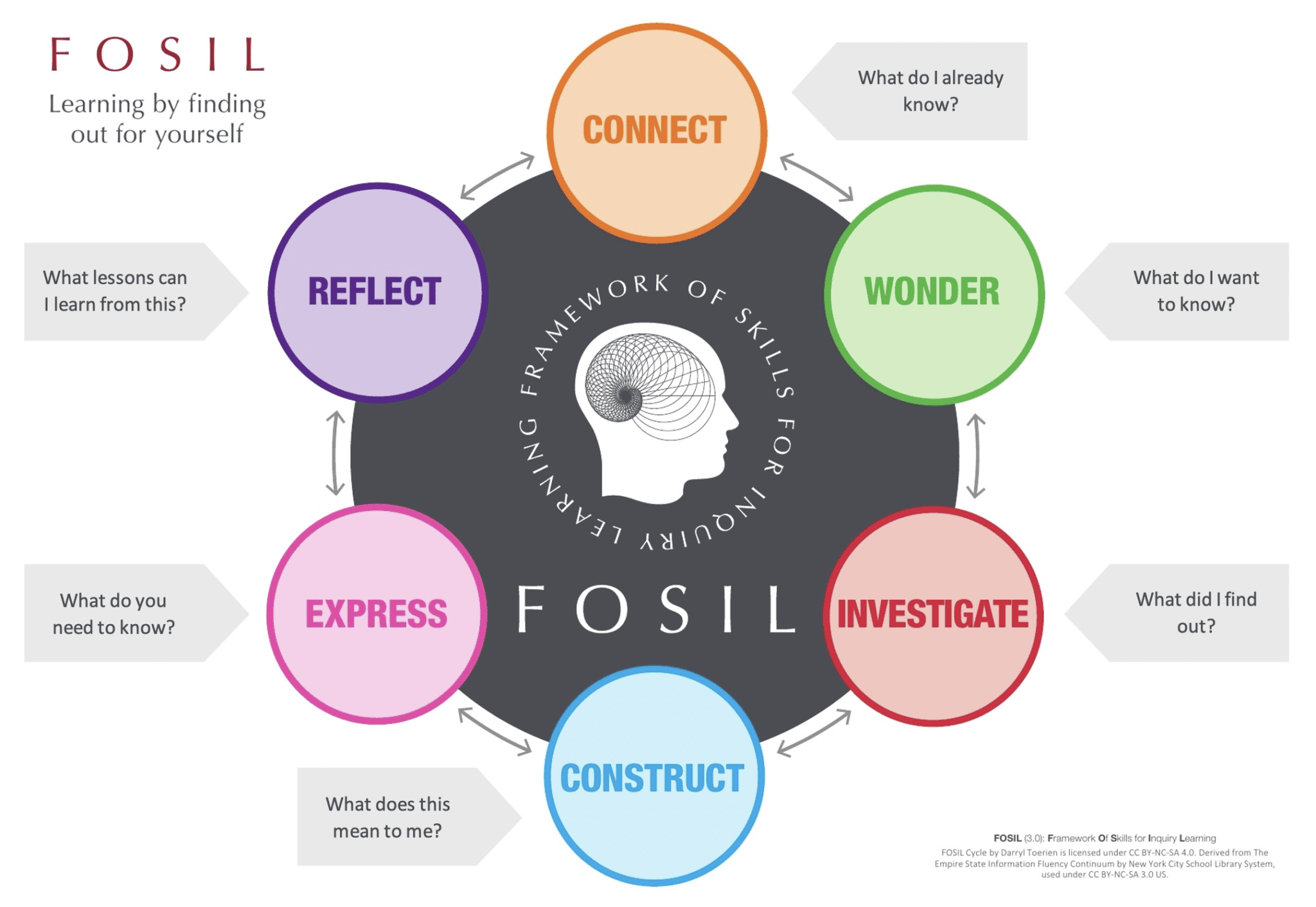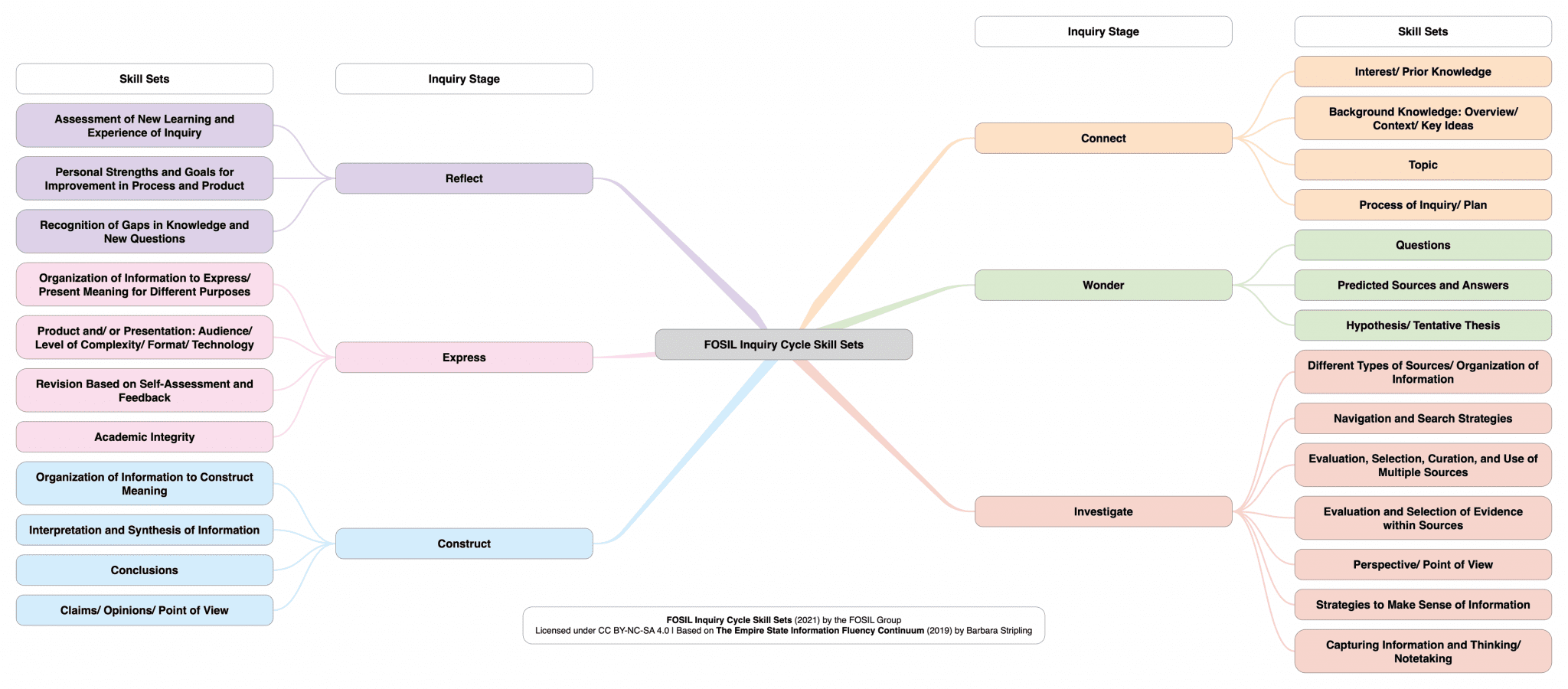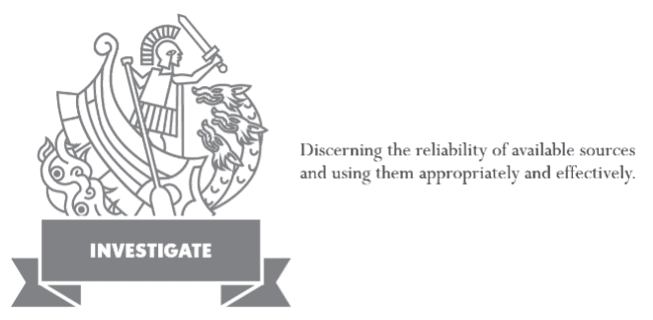On Monday 9 December, I joined Matt Bosica from The Day and Nicole Campbell, Senior Subject Lead of PSHE at Lilian Baylis Technology School in South London, to present Unlocking critical minds: A CPD webinar on inquiry-led learning.
The recording of the session may be viewed here.
My brief introduction to FOSIL-based inquiry is below:

FOSIL is an instructional model of the process of learning through inquiry, which is based on the work of Barbara Stripling. This version of the model has condensed descriptions of the stages, and was developed specifically for use in primary school, although it works equally well for secondary.
For our keynote address at the UK SLA conference in 2021 – Inquiry: An Educational and Moral Imperative – Barbara and I defined inquiry as a stance of wonder and puzzlement that gives rise to a dynamic process of coming to know and understand the world and ourselves in it as the basis for responsible participation in community.
Inquiry, then, is a stance and an iterative learning process that is centred on an engaged and empowered inquirer, which is reflected in the central image.
The process starts with connect, because the questions that arise out of a sense of wonder and puzzlement are always in response to something. Instructionally, our task here is to engage students intellectually and emotionally in the process of learning, which they must do if real learning is to happen. If students have questions that they are genuinely interested in answering, they are less likely to cheat, and these questions further serve to guide students through their investigation – we will look at this in greater detail later. While Investigate is concerned with making sense of information, Construct is concerned with finding meaning in that information, and this is where real learning occurs, as opposed to mere memorisation of information and reproduction. Express requires students to be able to share their learning – not just information – appropriately, effectively and ethically, which is where citing and referencing comes, less as a technical skill and more as an academic one. If students are thoughtfully and passionately engaged in their learning, reflecting on the process and outcome of their learning comes naturally.

An important feature of FOSIL is the identification of the skill sets that enable each stage in the process.
This adds a helpful layer of detail and complexity to the process, and is a step towards the underlying framework of PK-12/Reception-Year 13 skills and their associated graphic organisers.
The kinds of critical thinking skills required in the process of learning from information become much clearer at this level, and facilitate planning for and mapping the acquisition of these skills across subjects and year groups.

While the skills sets facilitate planning and collaboration among teachers, the icons that we have developed for Heroic Inquiry at Blanchelande College for each of the stages facilitate teaching and learning through inquiry.
By way of illustration, the Investigate icon is particularly apt, given our focus here on critical thinking.
This is also the expanded description of the Investigate stage, the meaning of which is reflected in the icon. Given the classical emphasis of the Hero’s Journey at Blanchelande, the stages of which are aligned to the stages in the Heroic Inquiry process, the two monsters represent Scylla and Charybdis.
One monster represents the threat of too much information, what David Foster termed Total Noise, the growing “tsunami of available fact, context and perspective” that threatens to drag us under and drown us. The other monster represents the overwhelming maelstrom of mis-, dis- and mal-information. The Heroic Inquirer must both fend off and navigate through this information dis-order if sense is to be made and meaning to be found.
This iconic representation of the Heroic Inquirer and the Heroic Inquiry stance and process has proven to be of enormous instructional value.
Consequently, in the spirit of the FOSIL Group, which is free to join and freely shares in each other’s work, we are working on the Heroic Inquiry cycle reimagined in a contemporary setting that we will introduce during the Inaugural FOSIL Symposium on Saturday 8 February (details to follow), and freely share with whoever might find it useful.




